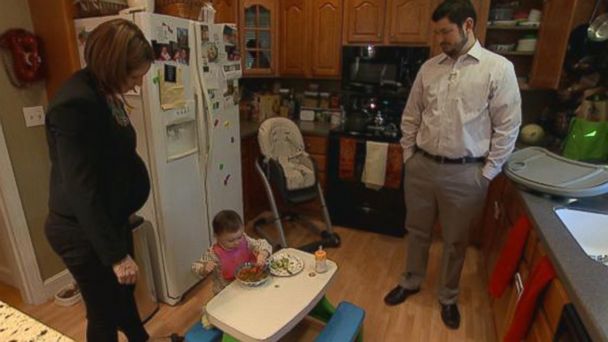A Peek Inside the Life of the Breadwinning Mother

ABC News
Michelle Benfer, a successful sales manager in Boston, is the breadwinner in her household, making twice as much as her husband.
It's an unexpected role, though, considering the promise Matt Benfer made before they got married - that she could stop working when she turned 30.
"That hasn't happened," said Michelle Benfer, now 34.
"I had lofty expectations," said Matt Benfer, a research analyst for a small investment firm.
Instead, the Benfers are among the 40 percent of U.S. households with children in which the woman is the primary breadwinner.
Related: Record Number of Female Primary Breadwinners, Pew Says
A new report today by Working Mother Media found that the majority of breadwinning mothers surveyed - 71 percent - had fallen into their primary-earner role by chance, like Michelle Benfer.
"There have been times, you know, when I got the new job … he was making jokes about, I don't need him anymore now that I'm making more money," Michelle Benfer said.
According to the survey, women who did not choose to be the breadwinner were also much less satisfied with the role than breadwinning fathers.
"Breadwinning moms have much more stress," said Carol Evans, president of Working Mother Media. "They are asked to do more at home."
Related: More Women Becoming Breadwinners
The biggest issue: Men not helping with the housework. Only 60 percent of breadwinning moms surveyed by Working Mother Media said they were satisfied with how the housework was divided.
"We finally hired a cleaning lady once a month," said Catherine Merritt, a breadwinning mom in Chicago. "I figured it was cheaper than divorce."
Ashley Saulino in Colorado said she and her husband fought over childcare.
"I feel like I am the one who is expected to take care of the children," she told ABC News. "And I have to call in a favor or ask my husband to help with the kids."
And though a recent Pew survey found the total family income was higher when the mother, not the father, was the primary breadwinner, some moms said they also felt an overwhelming sense of responsibility and financial stress.
"It was pressure I was putting on myself and knowing that we were now relying on a new income level and I was the major contributor to that," Michelle Benfer said.
"You know it's scary. Everything rises and falls on you - the kids' ability to have the college that they want to go to, your home, the car you have," Evans said.
Despite this new frontier, Michelle and Matt Benfer said they considered themselves a team and were committed to making it work.